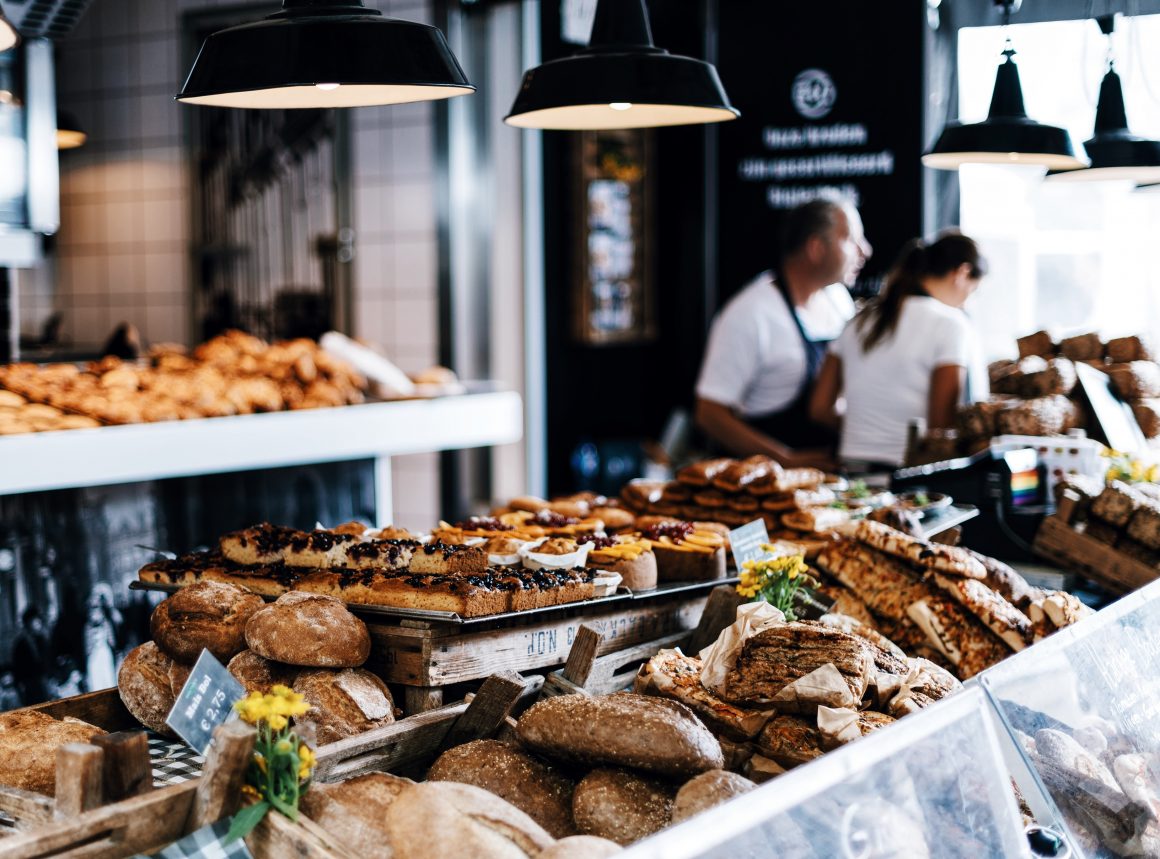Over the last 3 years, I’ve traveled a lot more than I thought I would. Some of these trips were spontaneous. If I could go back, I would do things a little different to make sure I’ve experienced the most of my time in the cities I visited.
I always tell myself: “I wish I did this or took a photo there when I had the opportunity”.
So, based on my experience and my regrets, I am writing this post.
10 things you should do every time you travel
1. Plan ahead
I think sometimes we forget to “research” a little about what is happening in and around the destination during the duration we are visiting.
Example: Is it during a festival or a public holiday?

By planning, I don’t mean sorting out your flights and accommodation. I’m talking about reading about other people’s experience or recommendations at this destination via travel blogs or creating a bucket list of things you want to do when you arrive there.
- Like the top restaurants, you would like to visit?
- Photos you would like to take? – This one is what us bloggers do a lot.

2. Ask the locals for suggestions
Honestly, this is the best way to see a place. Make friends with some of the locals and ask them about the “hidden” spots or where would be the best place to buy souvenirs because we all know buying them at the airport is a big no-no. This is will also help you learn a bit about the language or customs of the area.
3. Use public transport
This is the easiest and cheapest way to get around especially if you are in cities like London. When you experience life as a local, you get to see a lot more. You meet new people all the time which may help you get out of your comfort zone a little.

4. Visit local markets
Local markets are a must-see. Some of them have a huge variety of good food, music and beautiful locally handmade items that you can take back home as gifts. It also gives you a sense of the local culture and lifestyle.
5. Take a day trip
When I was one in New York, I did a food tour with a few locals which was an experience I will never forget. We had the best pizza, coffee and ice cream in Brooklyn. It was an entire day of walking, but it was so worth it! We learned so much about Brooklyn, the history and food.

6. Check out the nightlife
There’s always something exciting happening at night. Don’t be afraid to try something new or even to go out just to take out a few pictures at your favorite spot. Times Square is amazing at night, you would want to be out till 1 am! Get dressed and explore life after night.
7. Be spontaneous
I know I said plan ahead at the beginning of this post but also keep a day or two aside to just explore and be spontaneous. Walking may be the best for this (depending on where you are and how safe it is there). You might stumble upon a familiar place or something unexpected that will blow your mind away.
8. Eat somewhere local
When I travel, I like to try a bit of everything, but on my bucket list (always) is to try something “local” that the city is known for. Like if you visit Durban, a bunny chow is a must.

9. Stay in multiple locations
I know sometimes this may be a pain, but it is the best way to see a country or city. By doing this you get to experience a little of the local lifestyle and what people in different areas do. Trust me, sometimes it is completely different on one end compared to the other.
10. Capture the moment
Carrying a camera is a must but for me, carrying my Instax is even more important because I get to capture the moment and bring it back with me to add to my wall of travel. If you can, write down your experience or special moments in a journal that you can look back at.

Is there anything you would like to add to this list?
Remember, be a traveler, not a tourist. You will see and experience so much more at a lot cheaper.
- How Did We Ever Survive Without Air-Fryers?
- Starting Over: Life, Divorce, and a New Chapter
- Discover a Hidden Gem in Mpumalanga: Angels View Hotel
- Want to win a Cruise worth R35,000?
- Sun City in Winter? Why not!


30 comments
Recycled copper market analysis Efficient copper scrap utilization Copper scrap community engagement
Scrap copper trading Copper scrap traceability Copper scrap industry best practices
Scrap copper waste disposal Copper recycling compliance Waste water treatment in copper recycling
Scrap aluminium market dynamics Aluminium scrap trading market Aluminum recycling facility management
Local aluminium scrap yard Scrap aluminum traders Aluminium scrap classification
Scrap metal recycling Ferrous material shredding services Iron repurposing center
Ferrous material waste minimization, Iron scrap utilization services, Scrap metal pricing models
Scrap metal yard operations Ferrous metal recycling expert Iron salvage yard services
Ferrous waste handling solutions, Iron scrap reprocessing plants, Scrap metal community engagement
Scrap metal reclaiming services Aluminum processing equipment Aluminum recycling facility
Metal reclamation site, Aluminum cable weight, Scrap metal reuse
Scrap metal conveyance Ferrous material recycling associations Iron scrap reclamation and reuse
Ferrous material distribution, Iron scrap recycling, Scrap metal salvage services
Scrap metal disposal center Aluminium recycling feasibility studies Aluminium heat exchanger scrap recycling
Scrap metal refurbishment, Aluminum cable scrap recovery rates, Metal scrap processing efficiency
Scrap metal utilization center Environmental aluminum recycling Scrap metal recovery of aluminum
Metal waste refurbishing center, Recycle aluminum cable, Metal disposal
End-of-life metal recovery Aluminium recycling compliance standards Scrap aluminium transaction management
Metal waste compacting, Aluminum cable scrap prices, Scrap metal reclamation and reutilization center
Scrap metal reclamation and recovery yard Ferrous material logistics and handling Iron scrap reutilization centers
Ferrous metal salvage services, Iron reclaiming and recycling, Metal scrap processing
Scrap metal logistics optimization Aluminium scrap marketing Aluminium scrap shredding
Metal waste processing, Aluminum cable scrap grades, Metal reclaiming and salvage
Metal scrap heap Ferrous material recyclability assessment Scrap iron reclaiming solutions
Ferrous material recycling inspection, Scrap iron recovery services, Scrap metal weighing services
Metal waste scrapyard Aluminium recycling software Aluminium scrap accounting
Metal waste remolding, Granulation and processing of aluminum cables, Metal waste reforming
Metal waste reclaiming solutions Ferrous metal inventory management Iron scrap reclaiming operations
Ferrous waste repurposing initiatives, Scrap iron removal, Metal scrapping depot
Metal waste inventory control Aluminium scrap recovery techniques Aluminium recovery techniques
Metal scrap sustainability, Methods of recycling aluminum cable, Scrap metal remolding
Metal recyclable waste processing Ferrous material financials Iron waste reutilization center
Ferrous metal recover, Iron repurposing plant, Metal waste collection
Scrap metal recovery and reclamation yard Aluminium recycling facility management Aluminium scrap certification standards
Scrap metal remanufacturing center, Buy aluminum cable, Metal recovery and reclaiming center
Metal scrap recovery yard Ferrous metal yard Iron waste brokerage
Ferrous material recycling appraisal, Iron waste, Scrap metal exports
Copper alloy reusing Scrap copper recycling process Copper scrap melting technologies
Scrap metal recovery and processing, Scrap copper transaction management, Metal waste processing solutions
Copper scrap acceptance criteria Copper, one of the earliest metals to be used by humans, has been an essential component of human civilization since the beginning of recorded history. The use of copper dates back to the Bronze Age, around 3000 BC. However, the exact timeline of the copper age is difficult to establish, as it was a gradual process and not a sudden discovery. The first evidence of copper use can be traced back to the Middle East, where copper artifacts from 4500 BC have been found. Copper was used for a range of purposes in the ancient world, including making tools, weapons, and jewelry. Copper is a relatively abundant metal that can be found in various parts of the world, but it was particularly prevalent in the Middle East, where early civilizations developed. Copper was discovered by these early civilizations as they learned to smelt ores and extract the metal from them. Copper was first used for decorative purposes, such as jewelry, but its usefulness soon extended to practical applications as well. Early copper tools and weapons were made by hammering copper into shape, but as metallurgical techniques advanced, copper was also cast into molds to create more complex shapes. As the use of copper became more widespread, different cultures developed unique methods of working with the metal. For example, in the Andes, native peoples developed the technique of alloying copper with tin to create bronze, a harder and more durable material. In Europe, the use of copper became more widespread during the Bronze Age, which lasted from around 2000 BC to 1200 BC. During this time, copper was alloyed with tin and other metals to create bronze, which was used to make tools, weapons, and ceremonial objects. The use of copper continued to expand, and by the time of the Roman Empire, copper was being used for a wide range of purposes, including plumbing, coinage, and architectural decoration. The Romans even used copper as a preservative to help keep their wine fresh. Today, copper is still used for a wide range of purposes, from electrical wiring to architectural design. The demand for copper continues to grow, and new technologies are being developed to make use of this versatile metal in even more ways. Copper’s importance in the development of human civilization cannot be overstated, and it will no doubt continue to play a vital role in our lives for years to come Metal scrap salvage Copper scrap annealing Copper wire scrap yard Green copper recycling Efficient copper scrap utilization Metal reclaiming yard collection
Scrap metal reclamation and reprocessing facility Ferrous material trade restrictions Iron scrap transportation
Ferrous material market outlook, Iron waste reusing services, Metal reclaiming yard collection
Copper scrap reclamation services Copper is one of the most versatile and widely used metals in the world. It is a soft, malleable, and ductile metal that has excellent thermal and electrical conductivity. Because of its unique properties, copper has countless industrial, commercial, and residential applications. Here are some of the most common uses of copper metal: 1. Electrical wiring: Copper’s high conductivity makes it an ideal metal for electrical wiring. Copper wires are used in all types of electrical devices, from computers to appliances to power grids. 2. Plumbing pipes: Copper is also commonly used in plumbing pipes, fittings, and fixtures due to its excellent resistance to corrosion, high temperatures, and mechanical wear. 3. Construction materials: Copper is used in a variety of construction materials, such as roofing and gutter systems, due to its durability and ability to withstand harsh weather conditions. 4. Industrial machinery: Copper is used in many types of industrial machinery, such as heat exchangers and boilers. Copper’s high thermal conductivity makes it an ideal metal for heat transfer applications. 5. Coins: Copper is a widely used material for coins due to its durability, resistance to corrosion, and malleability. 6. Jewelry: Copper is a popular metal for jewelry due to its unique malleability and natural reddish-brown color. It is often used as a base metal for silver and gold plating. 7. Antimicrobial applications: Copper has natural antibacterial properties that make it ideal for use in medical equipment, water purification systems, and other antimicrobial applications. 8. Automotive parts: Copper is used in many automotive parts, such as radiators and brake lines, due to its high thermal conductivity and resistance to corrosion. 9. Artifacts: Copper has been used for thousands of years to create decorative artifacts and sculptures due to its unique properties and malleability. Overall, copper is a highly versatile metal that plays a critical role in many industrial, commercial, and residential applications Metal recovery and reclamation Scrap Copper buyer Copper scrap storage practices Scrap copper analysis Copper alloy identification Metal recycle yard
Copper scrap inventory Copper rod recycling Scrap metal reclaiming plant
Selling Copper cable, Metal recycling and reclamation, Copper recycling best practices
Metal waste melting, Scrap copper trade, Copper cable scrap yards, Metal waste reprocessing
Scrap metal grading standards Scrap metal traders Iron waste management services
Ferrous material recycling innovation, Iron scrap collecting, Scrap metal management solutions
Scrap metal buyers Ferrous waste salvaging Iron scrap sorting
Ferrous material recycling awareness, Iron waste reclamation and recovery, Metal reclaiming and reutilization center
Environmentally-friendly metal disposal Ferrous metal reclamation operations Recycling iron waste
Ferrous scrap utilization, Iron recovery and recycling, Scrap metal reclamation methodologies
Metal recycle and recovery Ferrous material recycling community outreach Iron waste utilization
Ferrous material recycling water conservation, Iron scrap reclaiming center, Metal industry trend analysis